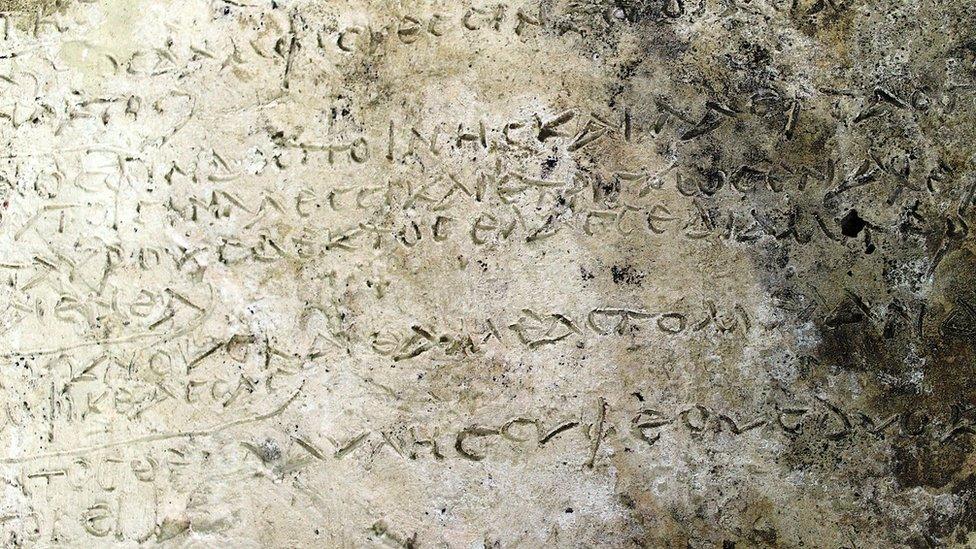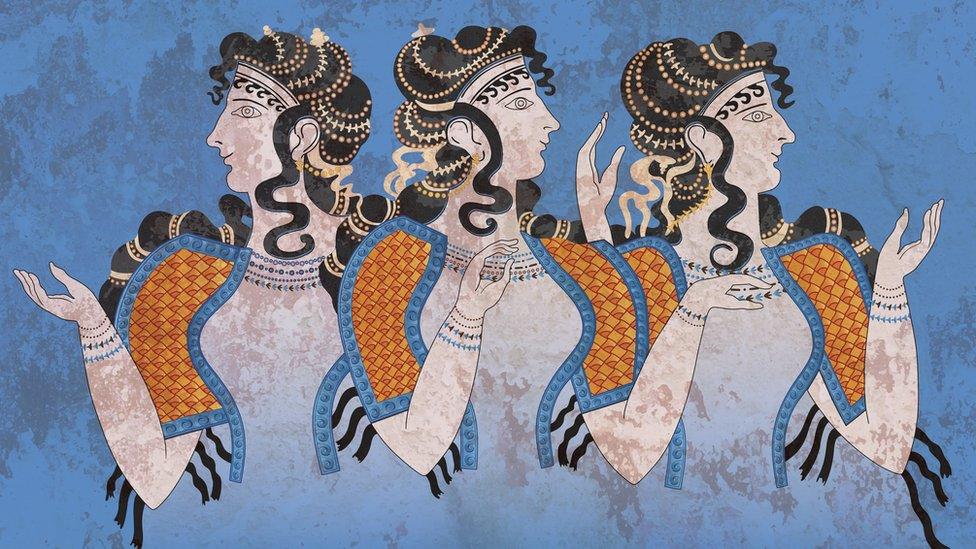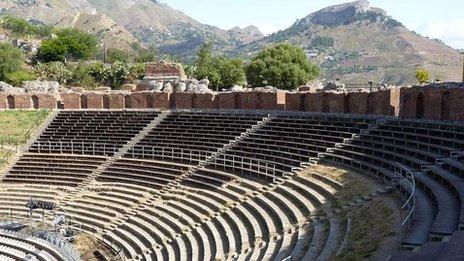Homer Odyssey: Oldest extract discovered on clay tablet
- Published

A clay tablet discovered during an archaeological dig may be the oldest written record of Homer's epic tale, the Odyssey, ever found in Greece, the country's culture ministry has said.
Found near the ruined Temple of Zeus in the ancient city of Olympia, the tablet has been dated to Roman times.
It is engraved with 13 verses from the poem recounting the adventures of the hero Odysseus after the fall of Troy.
The tale was probably composed by Homer in the late 8th Century BC.
It would have been handed down in an oral tradition for hundreds of years before the tablet was inscribed.
The exact date of the tablet still needed to be confirmed, but its discovery was "a great archaeological, epigraphic, literary and historical exhibit", the Greek culture ministry said in a statement.
Excavations to uncover the tablet took three years.
The Odyssey is widely considered to be a seminal work in Western literature.
The poem, spanning some 12,000 lines, tells the story of Odysseus, king of Ithaca, who spends 10 years trying to get home after participating in the fall of the kingdom of Troy.
The tablet, discovered by Greek and German researchers, contains 13 verses from the Odyssey's 14th Rhapsody, in which Odysseus addresses his lifelong friend Eumaeus.

You may also like:
- Published3 August 2017

- Published23 October 2013
